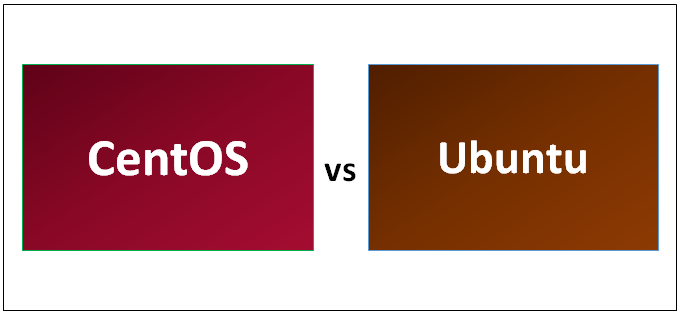
CentOS VS Ubuntu - An In-depth Comparison
- By Admin --
- Feb 23,2021 --
- 2607 Views ,
- 7 Comments
If you are in a confused state because of the two major Linux distributions in the hosting world, this article is for you. It explains the differences between the two distribution systems, especially when both of them are Linux-based.
CentOS vs. Ubuntu:
We have evaluated both this software on some of the noteworthy characteristics. By the end of this article, you’ll be able to find the one you should choose for your needs. So, let’s start.
System Core:
Ubuntu is a Debian software, part of the unstable Debian branch, and may not be binary compatible. Using it on Ubuntu may require rebuilding it.
CentOS is Made of open-source software, Red Hat Enterprise Linux (RHEL) forms a significant part of it. You can use it as it is without requiring any changes in it,
Updates:
For Ubuntu, you will get frequent updates, but for CentOS, the updates are infrequent.
Security:
The security of both the software is good. However, for Ubunto, it is a bit less than CentOS, and you’ll need to configure it a bit more to bring it at par with CentOS.
Support and Documentation
For the users of Ubunto, an excellent support forum and huge documents are available to highlight everything in detail. In the case of CentOS, enough documentation is present, but a little community is available to help in case of issues.
Target Market:
Ubuntu with all these features, targets desktop users, whereas the focus of CentOS is the server market and large corporations.
Usability:
From the user perspective, managing Ubunto is easy as compared to CentOS. This is why Ubunto is liked by the individual desktop users, whereas the corporations prefer CentOS.
Cloud Interface:
Ubuntu uses the OpenStack Cloud Interface, whereas CENTOS uses OpenStack, OpenNebula, CloudStack; Thus, it has more options, giving it a lead over Ubunto.
Packaging:
CentOS uses the RPM package format, whereas Ubuntu uses the DEB package format.
However, both the software have interaction between packages. Thus allowing you to handle all the necessary functions through one tool. In both cases, there are some rare cases, which demand the use of the underlying tools.
Stability:
When it comes to stability, Ubunto is good, but for CentOS, stability is high, showing that CentOS is the clear winner.
Default applications:
The default application of Ubuntu updates often whereas in the case of CentOS, the applications up-gradation, only when it is extremely necessary.
Summing Up:
This comparison highlights that CentOS is better software in terms of features.
However, when it comes to your needs, Ubunto would be better if you need desktop software, but if you need it for companies, especially the large conglomeration, then CentOS should be your choice.
So the decision is yours’. Be sure to consider your needs to reach a final decision.
Also Check: How to Force HTTPS using .htaccess?









Comment